Description
ABSTRACT
Third-Party Funding in Nigeria Seated Arbitrations: Time To Join The Progressives
Sixtus Iwuoha*
Once known as the low-cost cousin of litigation, arbitration in recent times has moved upscale with the burden on the parties to bear legal fees and expenses incurred in the arbitral process. This has led disputing parties to sometimes resort to family, friends, personal savings and financial institutions alike to meet the costs of arbitration. In the context of litigation qua arbitration, the current legal regime prohibits the involvement of third party funders/financiers in the dispute resolution process based on the common law doctrines of champerty and maintenance. However, court rulings and recent legislative intervention have introduced some measure of flexibility and relaxation in the interpretation of these doctrines leading to major in-roads in third party funding (“TPF”). Common law jurisdictions like the United Kingdom, Hong Kong and Singapore have embraced TPF with remarkable success in the management of arbitration costs and allocation of risks. This article posits that notwithstanding certain debatable ethical concerns, the time is ripe for TPF in Nigeria seated arbitrations.
Keywords: Litigation, Arbitration, Third Party Funders, Dispute Resolution.
INTRODUCTION
As the use of Third Party Funding (TPF) has increased in international arbitration, so has the number and range of arbitration institutions that are prepared to finance litigation and arbitration. In addition to specialized third party funders, insurance companies, investment banks, hedge funds and law firms have entered the market. An increasing number of countries have legalized TPF in order to make the arbitral seats within their territorial ambit attractive.1 TPF involves an arrangement where a third party (with no connection to the arbitration) agrees to finance all or part of the legal costs of the proceeding in return for a profit; usually from the sum awarded to the successful funded party.2 Nigeria operates under the common law system and the application of this arrangement under the current legal regime is not permissible.3 Under the common law, the doctrines of champerty and maintenance are considered contrary to public policy and frowned upon by the courts.
* LLB, BL. The author is currently an LL.M candidate at Osgoode Hall Law School, Toronto, Canada. Prior to embarking on his graduate studies, he was an Associate in the Litigation, Arbitration and ADR Practice Group of Banwo & Ighodalo, a top tier commercial law firm in Nigeria. The author can be contacted at ug*************@**********ku.ca. The author would like to thank Joseph Onele and Onyinyechi Iwuoha for their helpful comments on the initial draft.
- White & Case and Queen Mary University of London, ‘2018 International Arbitration Survey: The Evolution of International Arbitration’ (White & Case, 2018) accessed 27 January 2020.
- Robert Wheal, Elizabeth Oger-Gross, Tolu Obamuroh, and Gustav Lexner, ‘Third Party Funding in Arbitration: Reforms in Nigeria’ (White & Case, 27 November 2018) accessed 27 January 2020.
- The Rules of Professional Conduct for Legal Practitioners, 2007, r 50 (3) and 51.
THE GRAVITAS REVIEW OF BUSINESS & PROPERTY LAW VOL.11 NO.1

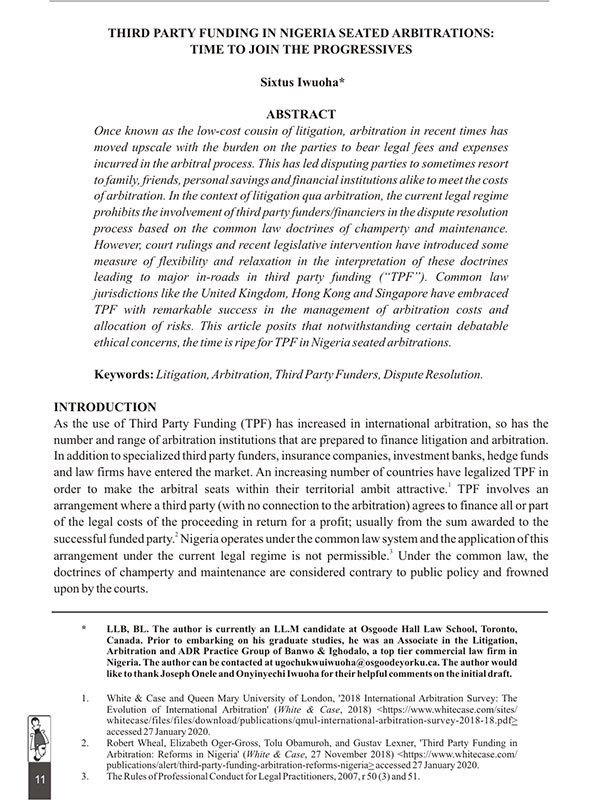
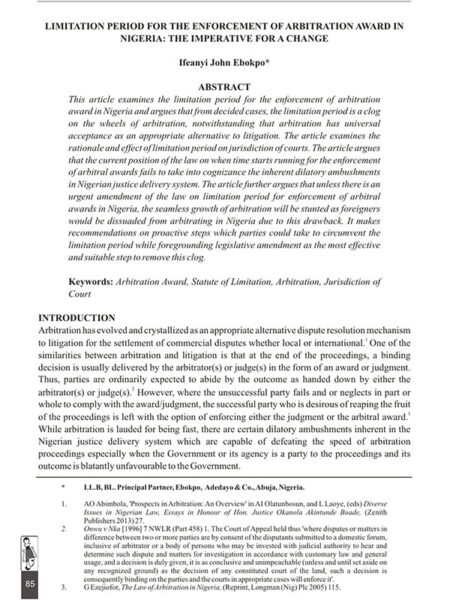
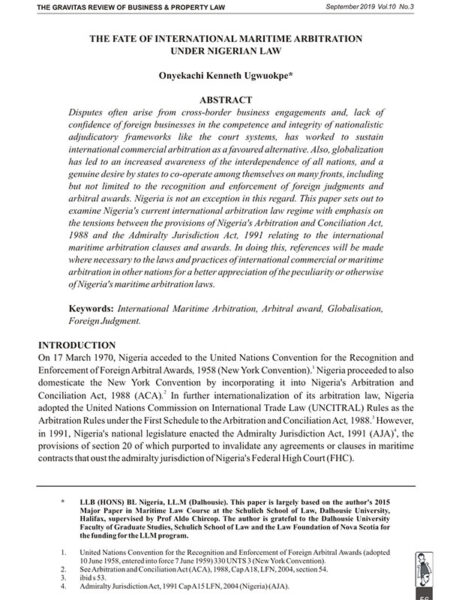
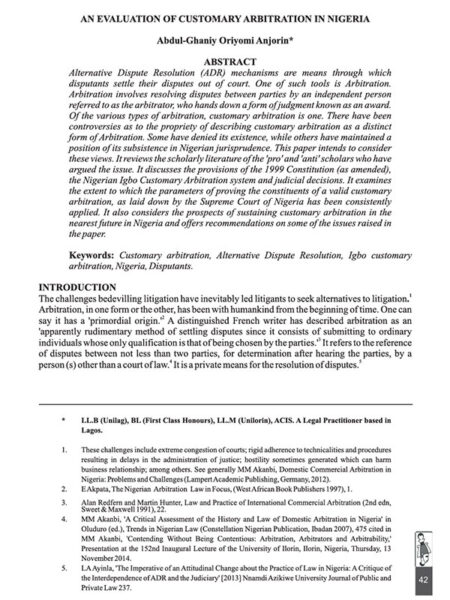
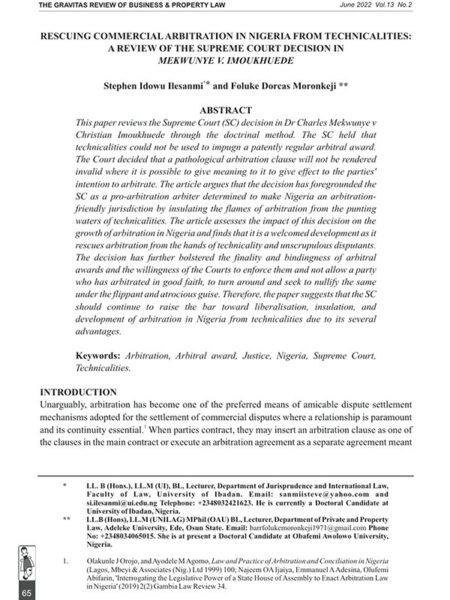


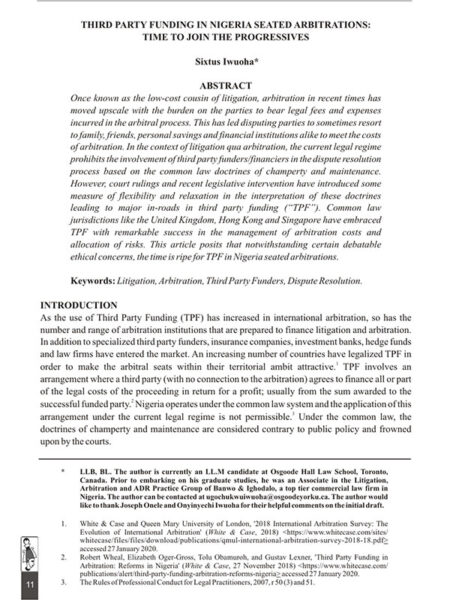
Reviews
There are no reviews yet.